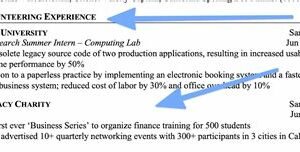Table of Contents
Looking to gain real-world experience in computer programming? Explore volunteer opportunities as a computer programmer and contribute your skills to meaningful projects. Find rewarding volunteer jobs where you can develop your coding expertise, collaborate with professionals, and make a positive impact on communities or nonprofit organizations. Join now and enhance your programming abilities while making a difference!
Are you a talented computer programmer looking for a way to give back to your community? Look no further! Computer programmer volunteer jobs offer a unique opportunity to utilize your skills while making a positive impact. Whether you’re a seasoned professional or just starting out in your programming career, volunteering in this field can provide invaluable experience and networking opportunities. Transitioning from the corporate world to the non-profit sector not only allows you to use your technical expertise for a worthy cause but also allows you to develop new skills and broaden your horizons. Joining a team of like-minded individuals who share your passion for technology and social change can be an incredibly rewarding experience. So why wait? Take the leap and explore the exciting world of computer programmer volunteer jobs today!
Introduction
Computer programming is a highly sought-after skill in today’s digital age. With the increasing demand for technology professionals, there are numerous opportunities for computer programmers to volunteer their skills and make a positive impact in various organizations and communities. This article will explore the different avenues through which computer programmers can contribute as volunteers, highlighting the benefits of such roles and the valuable experiences gained.
Non-Profit Organizations
Non-profit organizations often face budget constraints when it comes to technology infrastructure and software development. As a computer programmer volunteer, you can assist these organizations by building and maintaining their websites, creating custom software solutions, or even developing mobile applications to streamline their operations and outreach efforts. By dedicating your time and expertise, you can help non-profits achieve their goals more efficiently and effectively.
Education and Mentorship
One way computer programmers can make a significant impact is by volunteering in educational institutions. You can teach coding and programming skills to students of all ages, from primary schools to universities. Additionally, mentoring aspiring programmers can provide them with invaluable guidance and support as they navigate their careers. Through these volunteer opportunities, you can inspire and empower the next generation of tech professionals.
Open Source Projects
Contributing to open-source projects is another fulfilling way for computer programmers to volunteer their skills. Open source software relies on the collaborative effort of developers worldwide, and your contributions can range from coding new features, fixing bugs, to improving documentation. By participating in these projects, you not only enhance your programming abilities but also contribute to the advancement of technology for the greater good.
Disaster Response and Relief
In times of natural disasters or humanitarian crises, technology plays a crucial role in coordinating relief efforts. Computer programmers can volunteer with organizations that specialize in disaster response, developing software tools to aid in logistics, communication, and emergency management. By utilizing your programming skills during these critical times, you can contribute to saving lives and helping communities recover more efficiently.
Healthcare Initiatives
Volunteering as a computer programmer in healthcare initiatives allows you to contribute to the development of innovative solutions that address various health challenges. This can involve creating applications for patient monitoring, medical record management systems, or even analyzing large datasets to identify patterns and trends in healthcare. Through these projects, you can directly impact the well-being of individuals and improve the efficiency of healthcare providers.
Virtual Volunteering
Thanks to technology, computer programmers can also engage in virtual volunteering from anywhere in the world. Organizations offer remote opportunities where you can contribute your skills online. This can include working on coding projects, providing technical support, or assisting with website development and maintenance. Virtual volunteering provides flexibility and accessibility, allowing you to make a difference regardless of geographical constraints.
Networking and Skill Enhancement
Volunteering as a computer programmer not only benefits the organizations and communities you serve but also enhances your professional growth. By working alongside other tech professionals and collaborating on meaningful projects, you expand your network and establish valuable connections. Additionally, these volunteer experiences enable you to refine your programming skills, learn new technologies, and gain practical experience in real-world scenarios.
Personal Fulfillment and Impact
Engaging in volunteer work as a computer programmer can be incredibly fulfilling on a personal level. Knowing that your skills are making a positive impact in the lives of others and contributing to the betterment of society can bring a sense of purpose and fulfillment. It allows you to leverage your expertise for a greater cause, fostering personal growth and a deeper connection to the global community.
Conclusion
Computer programming volunteer jobs offer a wide range of opportunities to utilize your skills while giving back to various organizations and communities. Whether it’s through non-profit organizations, educational institutions, open-source projects, disaster response, healthcare initiatives, or virtual volunteering, there are countless ways for computer programmers to make a meaningful difference. Embrace these volunteer roles not only for the benefits they provide to others but also for the personal and professional growth they offer you as a programmer.
Subheading 1: Job Description and Requirements
As a computer programmer volunteer, your primary responsibility will be to develop and maintain software applications for non-profit organizations. This role requires proficient coding skills in languages such as Java, C++, or Python, as well as experience with relevant software development tools and methodologies. Additionally, a solid understanding of database management systems and the ability to troubleshoot and debug applications are essential.
Subheading 2: Project Management and Collaboration
In this volunteer position, you will collaborate closely with project managers and stakeholders to define project requirements, scope, and deliverables. You will actively participate in team meetings, providing input on technical feasibility and recommending solutions. Effective communication skills and the ability to work within project timelines are crucial for successful project execution.
Subheading 3: System Analysis and Design
As a volunteer computer programmer, you will be involved in system analysis and design, where you will work on creating and translating user requirements into software solutions. This includes conducting feasibility studies, documenting system specifications, and developing technical designs. Your role is vital in ensuring that the final product is efficient, user-friendly, and aligns with the organizational goals of the non-profit organization.
Subheading 4: Software Development and Testing
In this role, you will engage in coding and programming activities to develop and enhance software applications. Your tasks will involve writing efficient and maintainable code, conducting unit tests, and ensuring overall software quality. You will also be responsible for documenting code changes, version control, and software release management.
Subheading 5: Bug Fixing and Troubleshooting
As a computer programmer volunteer, you will encounter and resolve software bugs and issues. This will require performing in-depth debugging, analyzing error logs, and implementing appropriate fixes. Collaborating with the Quality Assurance (QA) team to conduct thorough testing and validate bug resolutions is an integral part of this role.
Subheading 6: Continuous Learning and Skill Enhancement
Volunteering as a computer programmer offers a valuable opportunity to enhance your existing programming skills and learn new technologies. You will have access to professional development resources, workshops, and training sessions to stay updated with the latest industry trends. Embracing a growth mindset and staying curious are essential for personal and professional development in this field.
Subheading 7: Documentation and Technical Writing
In addition to writing code, as a volunteer computer programmer, you will be responsible for documenting technical specifications, user manuals, and software release notes. Effective technical writing skills are required to ensure clear and concise documentation that can be easily understood by other team members and stakeholders.
Subheading 8: Ethical and Professional Conduct
As a volunteer, it is essential to adhere to ethical and professional codes of conduct related to the use and protection of confidential information, intellectual property, and respect for diversity. Upholding these principles helps build trust, maintain the reputation of the organization, and fosters a positive working environment.
In today’s rapidly evolving technological landscape, computer programmer volunteer jobs play a crucial role in supporting various non-profit organizations and initiatives. These positions provide an opportunity for skilled professionals to contribute their expertise and make a meaningful impact on society. Here are some key points highlighting the importance and benefits of computer programmer volunteer jobs:
Addressing the digital divide: Computer programmer volunteers can help bridge the gap between those who have access to technology and those who do not. By developing software applications, websites, or educational tools, these volunteers can empower underserved communities and promote digital literacy.
Supporting non-profit organizations: Many non-profit organizations rely heavily on technology to streamline their operations and reach a wider audience. Computer programmer volunteers can assist in developing custom software solutions, database management systems, or websites that enhance the efficiency and effectiveness of these organizations.
Advancing social causes: Volunteer programmers have the opportunity to work on projects that directly contribute to social causes they are passionate about. Whether it’s developing software for environmental conservation, healthcare initiatives, or educational programs, these volunteers can use their skills to drive positive change in society.
Professional growth and skill enhancement: Engaging in computer programmer volunteer work allows professionals to further develop their technical skills and gain valuable experience. It provides an opportunity to work on diverse projects, collaborate with other skilled individuals, and expand their knowledge in different programming languages and technologies.
Networking and career opportunities: Volunteering as a computer programmer can open doors to new connections and potential job opportunities. Building a strong professional network within the non-profit sector can lead to recommendations, references, or even paid positions in the future.
Personal fulfillment: Perhaps the most rewarding aspect of computer programmer volunteer jobs is the sense of fulfillment that comes from using one’s skills to make a positive impact. Being able to witness the direct results of their work and seeing how it positively affects individuals or communities can be incredibly gratifying.
In conclusion, computer programmer volunteer jobs offer professionals an avenue to utilize their technical expertise for the betterment of society. From addressing the digital divide to supporting non-profit organizations and advancing social causes, these volunteer positions provide both personal and professional growth opportunities. Engaging in such work not only benefits the communities being served but also allows programmers to enhance their skills, expand their network, and experience the joy of using their talents to create a lasting impact.
Thank you for visiting our blog and taking the time to learn more about volunteer opportunities as a computer programmer. We understand that your skills and expertise are invaluable, and we appreciate your interest in using them to make a difference in the world. In this closing message, we would like to emphasize the importance of volunteering as a computer programmer and highlight some key points from our article.
First and foremost, volunteering as a computer programmer allows you to contribute to meaningful projects that have a positive impact on society. By lending your technical skills to organizations and non-profits, you can help develop software solutions, improve existing systems, or create innovative applications that address various social issues. Whether it’s developing an educational platform for underprivileged children or designing a website for a local charity, your programming abilities can play a crucial role in driving positive change.
Furthermore, volunteering in the field of computer programming offers numerous benefits for personal and professional growth. As a volunteer, you have the opportunity to enhance your programming skills by working on diverse projects and collaborating with individuals from different backgrounds. This exposure not only broadens your technical expertise but also strengthens your problem-solving and communication abilities. Additionally, volunteering allows you to build a strong network within the tech community, connecting you with like-minded professionals and potential future employers.
In conclusion, volunteering as a computer programmer is a rewarding experience that allows you to utilize your skills for the greater good. It provides you with the chance to contribute to meaningful projects, gain valuable experience, and make a positive impact on society. If you’re passionate about programming and want to use your expertise to give back to the community, we encourage you to explore volunteer opportunities in your area. Together, we can harness the power of technology to create a better world.
Thank you once again for visiting our blog, and we hope this article has inspired you to consider volunteering as a computer programmer. Feel free to explore other resources on our website to learn more about available opportunities and how you can get involved. We wish you the best of luck in your volunteering journey!
Video Computer Programmer Volunteer Jobs
Here are some commonly asked questions about computer programmer volunteer jobs:
1. What is a computer programmer volunteer job?
A computer programmer volunteer job involves offering your programming skills and expertise on a voluntary basis. It typically includes tasks such as coding, software development, system analysis, and troubleshooting for non-profit organizations, community projects, or humanitarian causes.
2. How can I find computer programmer volunteer opportunities?
There are several ways to find computer programmer volunteer opportunities:
- Contact local non-profit organizations, community centers, or charities to inquire about available positions.
- Join online platforms or forums dedicated to connecting volunteers with organizations in need of programming help.
- Reach out to educational institutions or technology-focused groups that may have information on volunteer opportunities.
3. Do I need professional experience to become a computer programmer volunteer?
While professional experience is beneficial, it is not always a requirement for computer programmer volunteer positions. Many organizations value enthusiasm, willingness to learn, and a basic understanding of programming concepts. However, having some coding knowledge or previous experience can increase your chances of securing a volunteer role.
4. How much time commitment is expected as a computer programmer volunteer?
The time commitment can vary depending on the organization and project you choose to volunteer for. Some opportunities may require only a few hours per week, while others may require more extensive involvement. It is important to communicate your availability and discuss the expected time commitment with the organization beforehand.
5. What are the benefits of volunteering as a computer programmer?
Volunteering as a computer programmer can offer various benefits, including:
- Opportunities to contribute your skills to meaningful causes and make a positive impact.
- Enhancement of your programming abilities and acquisition of new technical skills.
- Networking opportunities with professionals in the field and potential career advancement prospects.
- Personal satisfaction from giving back to the community and helping others.
6. Can volunteering as a computer programmer lead to paid job opportunities?
Volunteering as a computer programmer can certainly enhance your chances of securing paid job opportunities in the future. It allows you to gain practical experience, build a portfolio of projects, and expand your professional network. Many organizations value volunteers who have demonstrated their skills and commitment, which can lead to recommendations or job referrals.
7. Are there any specific programming languages or technologies in demand for volunteer positions?
The programming languages or technologies in demand for volunteer positions can vary based on the organization’s needs and projects. However, popular languages like Python, JavaScript, Java, and C++ are often sought after. It can be helpful to have a versatile skill set and a willingness to adapt to different programming languages and technologies.






